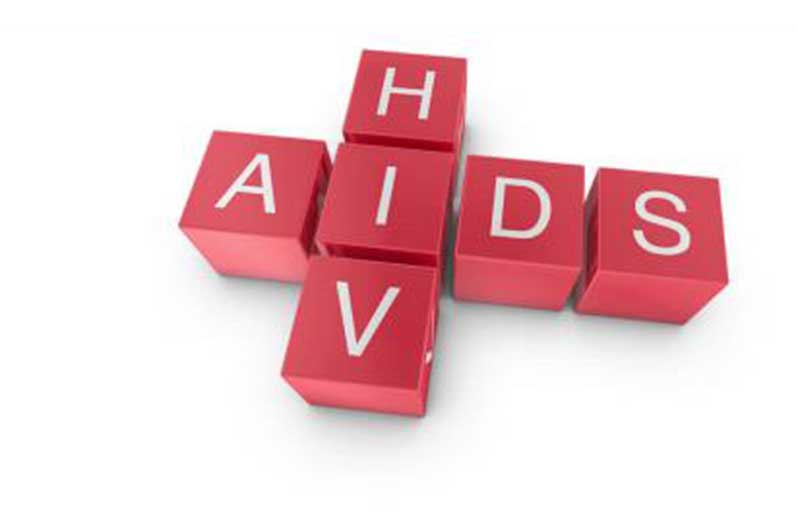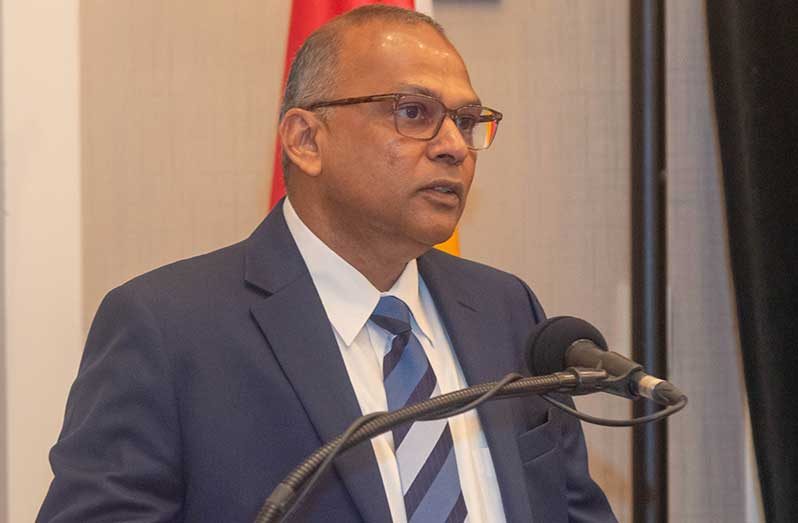key populations bear burden of HIV despite medical advances, says Health Minister
By Feona Morrison
IN light of the growing efforts to address the stigma and discrimination associated with HIV and AIDS, a judges’ forum convened legal professionals, healthcare experts, and activists to deliberate on approaches to promote inclusivity and support for individuals impacted by the illness.

The Guyana National Judges’ Forum on HIV, Human Rights, and the Law was launched on Tuesday at the prestigious Marriott Hotel in Kingston, Georgetown. The forum highlighted the essential responsibility of the judiciary in protecting human rights and fostering public health.
The Health Minister, Dr. Frank Anthony, delivered the opening remarks. He highlighted the disparity between HIV awareness and access to antiretroviral (ARV) treatment in Guyana. Additionally, he emphasised the obstacles of stigma and discrimination that impede individuals from seeking proper care.
Importantly, he emphasised the need to address HIV and AIDS through both medical advances and social reforms, including progressive laws and policies, education, and awareness, to reduce stigma and discrimination and improve access to care and treatment.
According to Minister Anthony, HIV is no longer a death sentence thanks to modern treatment, which suppresses viral levels so that the infection cannot spread.
According to him, the infection is now recognised as a chronic illness. He did, however, point out that despite these developments, men who have sex with men, transgender people, and the prison population “continue to bear the disproportionate burden of the HIV infection.”
Dr Anthony revealed that, at the end of 2023, HIV prevalence was 1.2 per cent among the general Caribbean population, but was much higher among key populations, such as transgender individuals.
“And for transgender individuals, the prevalence was 29.4 per cent. For men who have sex with men, it was 11.8 per cent. For people in the prison, it was at 3.6 per cent and among sex workers it was 2.6 per cent,” the health minister stated.
He explained that the United Nations Programme on HIV/AIDS (UNAIDS) has set up a way of measuring how countries have progressed with the battle against HIV/AIDS and have come up with the 95–95–95 HIV testing, treatment and viral suppression targets.
The health minister added: “When we look at the Caribbean, 85 per cent of persons living with HIV know their status. Of those, 83 per cent are on antiretrovirals. Of those who are on antiretrovirals, 87 per cent are virally suppressed. In Guyana, we have 94 per cent of the persons living with HIV [knowing their] status. But of those who know their status, 72 per cent are on treatment. Of those who are on treatment, 87 per cent are virally suppressed.”
Although treatment is available for free at all health facilities in Guyana, Dr. Anthony highlighted that there is a “big discrepancy” between people who know their status and those on ARV.
“What is the reason why there is this 20 per cent gap between those who know their status and those in treatment? And part of the challenge that we have is stigma and discrimination.
Because in a lot of the places [health facilities] where we offer here, over time, these places have become known and persons are afraid to come to these places for care,” he said. “If they don’t come, they can get complications and eventually die of HIV,” the minister pointed out.
While alluding to the challenges in accessing affordable treatment in the private sector, he said that primary healthcare workers have been trained to provide HIV treatment at all health centres, to address stigma and discrimination and to use HIV testing opportunities to screen for other Sexually Transmitted Diseases (STDs) such as Hepatitis B and C. Dr. Anthony said there are new types of prevention methods including pre-exposure prophylaxis (or PrEP) and injectables.
The health minister reasoned that repealing obsolete laws could help decrease stigma and discrimination. “This is something we need to really focus on and review.” He expressed optimism that this revision will help to achieve the goal of eliminating AIDS by 2030. All in all, he said significant progress has been made in HIV/AIDS treatment and prevention over the last 40 years.



.jpg)








